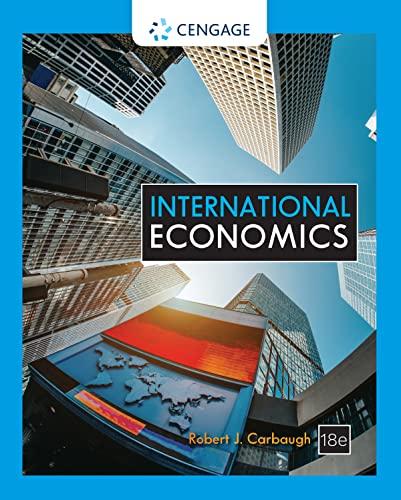The ability of OPEC to withstand declining oil prices was tested in 2014-2016. Oil prices dramatically fell
Question:
The ability of OPEC to withstand declining oil prices was tested in 2014-2016. Oil prices dramatically fell during that period, resulting in a near free fall in gasoline prices in the United States, with prices falling below $2.80 a gallon. The price at the pump usually follows oil after a few days. Why the decline in oil prices? The demand for oil was weakening worldwide, just as the global market was flooded with oil. On the demand side, the thirst for oil was declining in Europe, where unemployment was up and industrial production was down, and Japan, where the use of oil by utilities was being replaced by coal, natural gas, and the restarting of nuclear electricity plants. Also, the demand for oil in China and other emerging economies fell as their economies weakened. On the supply side, the U.S. shale-oil drilling boom was a major factor, with domestic oil production being at the highest level in almost a quarter century.
The surplus quantities of oil forced OPEC members to defend their market share at the expense of other members by cutting prices. For example, Saudi Arabia and Nigeria competed with one another in Asia by slashing prices. Therefore, considerable dissension developed within OPEC. At stake was whether OPEC could still operate as a global cartel amid infighting and expanding global production of oil. What made matters worse was that each member of OPEC had a different tolerance for lower prices. Saudi Arabia, Kuwait, and the United Arab Emirates usually don't need prices as high as Venezuela and Iran to keep their finances in the black.
A possible solution to falling oil prices would be for OPEC to decrease production.
But how do you get dissenting members to agree on production cutbacks? It was unclear how such vulnerable OPEC members as Venezuela and Nigeria, with small financial reserves and large government budgets, could afford to reduce production without reopening the spigots. And Saudi Arabia, the largest and most wealthy oil-producing member, was not willing to bear the pain of a unilateral cutback. Moreover, would members cheat on a cutback agreement and continue to produce large quantities of oil? Also, a reduction in OPEC output might not necessarily boost prices because of high output by non-OPEC producers, such as the United States. These were the difficulties that OPEC faced as it wrangled over what to do about falling oil prices. At the writing of this text, the future of OPEC remained unclear.
What do you think? Why is it difficult to run a cartel during periods of decreasing demand and falling prices?
Step by Step Answer:






